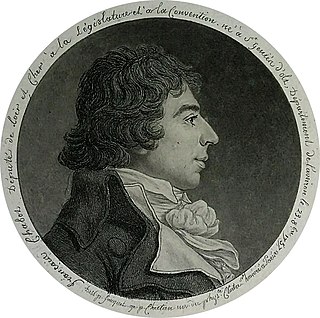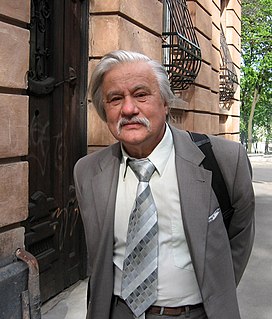
English grammar is the way in which meanings are encoded into wordings in the English language. This includes the structure of words, phrases, clauses, sentences, and whole texts.
Sentence(s) or The Sentence may refer to:
In grammar, an adverbial is a word or a group of words that modifies or more closely defines the sentence or the verb. Look at the examples below:

Crimen sollicitationis is the title of a 1962 document ("instruction") of the Holy Office codifying procedures to be followed in cases of priests or bishops of the Catholic Church accused of having used the sacrament of Penance to make sexual advances to penitents. It repeated, with additions, the contents of an identically named instruction issued in 1922 by the same office.

A question is an utterance which typically functions as a request for information, which is expected to be provided in the form of an answer. Questions can thus be understood as a kind of illocutionary act in the field of pragmatics or as special kinds of propositions in frameworks of formal semantics such as alternative semantics or inquisitive semantics. Questions are often conflated with interrogatives, which are the grammatical forms typically used to achieve them. Rhetorical questions, for example, are interrogative in form but may not be considered true questions as they are not expected to be answered. Conversely, non-interrogative grammatical structures may be considered questions as in the case of the imperative sentence "tell me your name."
The term sentence in law refers to punishment that was actually ordered or could be ordered by a trial court in a criminal procedure. A sentence forms the final explicit act of a judge-ruled process as well as the symbolic principal act connected to their function. The sentence can generally involve a decree of imprisonment, a fine, and/or punishments against a defendant convicted of a crime. Those imprisoned for multiple crimes usually serve a concurrent sentence in which the period of imprisonment equals the length of the longest sentence where the sentences are all served together at the same time, while others serve a consecutive sentence in which the period of imprisonment equals the sum of all the sentences served sequentially, or one after the other. Additional sentences include intermediate, which allows an inmate to be free for about 8 hours a day for work purposes; determinate, which is fixed on a number of days, months, or years; and indeterminate or bifurcated, which mandates the minimum period be served in an institutional setting such as a prison followed by street time period of parole, supervised release or probation until the total sentence is completed.
In linguistics and grammar, a sentence is a linguistic expression such as the English example "The quick brown fox jumps over the lazy dog." In traditional grammar, it is typically defined as a string of words that expresses a complete thought, or as a unit consisting of a subject and predicate. In non-functional linguistics it is typically defined as a maximal unit of syntactic structure such as a constituent. In functional linguistics, it is defined as a unit of written texts delimited by graphological features such as upper case letters and markers such as periods, question marks, and exclamation marks. This notion contrasts with a curve, which is delimited by phonologic features such as pitch and loudness and markers such as pauses; and with a clause, which is a sequence of words that represents some process going on throughout time.

François Chabot was a French politician.

The Complete Short Stories of Ernest Hemingway: The Finca Vigía Edition, is a posthumous collection of Ernest Hemingway's short fiction, published in 1987. It contains the classic First Forty-Nine Stories plus a number of other works and a foreword by his sons.

The passive voice in English is a grammatical "voice". The noun or noun phrase that would be the object of a corresponding active sentence appears as the subject of a sentence or clause in the passive voice.
Jean-Louis Gergorin is a former French diplomat and former executive vice president of EADS – the giant European aerospace company that controls Airbus.
He was at the origin of the Clearstream 2 scandal in France, which raised much turmoil in the French political life from 2006 to 2010. He was later found in this case guilty of slanderous denunciation, use of forgery, concealment of breach of trust and theft.

Denunciation in the context of sentencing philosophy demonstrates the disapproval of an act by society expressed by the imposition of a punishment. The purpose of denunciation is not so much to punish the offender but to demonstrate to law-abiding citizens that the particular behaviour which is being punished, or denounced, is not acceptable. In this respect, it has been argued that "punishment is not like a private letter; it is like a billboard put up on a busy street… it is also meant for the victim of crime and for the public at large”. Denunciation is one of five different objectives that punishment is thought to achieve; the other four objectives are deterrence, incapacitation, retribution and rehabilitation.

Ihor Myronovych Kalynets is a Ukrainian poet and Soviet dissident.
Disambiguation is the process of identifying which meaning of a word is used in context.

Wehrkraftzersetzung or Zersetzung der Wehrkraft was a sedition offence in German military law during the Nazi Germany era from 1938 to 1945.
In grammar, sentence and clause structure, commonly known as sentence composition, is the classification of sentences based on the number and kind of clauses in their syntactic structure. Such division is an element of traditional grammar.
Ahmed Abba is a Cameroonian journalist, correspondent for the Hausa broadcast service operated by Radio France Internationale. He was questioned and detained for his reportage on Boko Haram and was incarcerated in Cameroon for 876 days. He was released in Yaoundé on December 22, 2017.

Arijský boj was a pro-Nazi Czech-language weekly tabloid newspaper published between May 1940 and May 1945 in the Protectorate of Bohemia and Moravia. Inspired by Der Stürmer, the newspaper made antisemitism its main theme and was also critical of the Czechoslovak government-in-exile. Denunciations published by the newspaper contributed to the isolation of Jews during the first years of the Holocaust in Bohemia and Moravia.
This page is based on this
Wikipedia article Text is available under the
CC BY-SA 4.0 license; additional terms may apply.
Images, videos and audio are available under their respective licenses.








